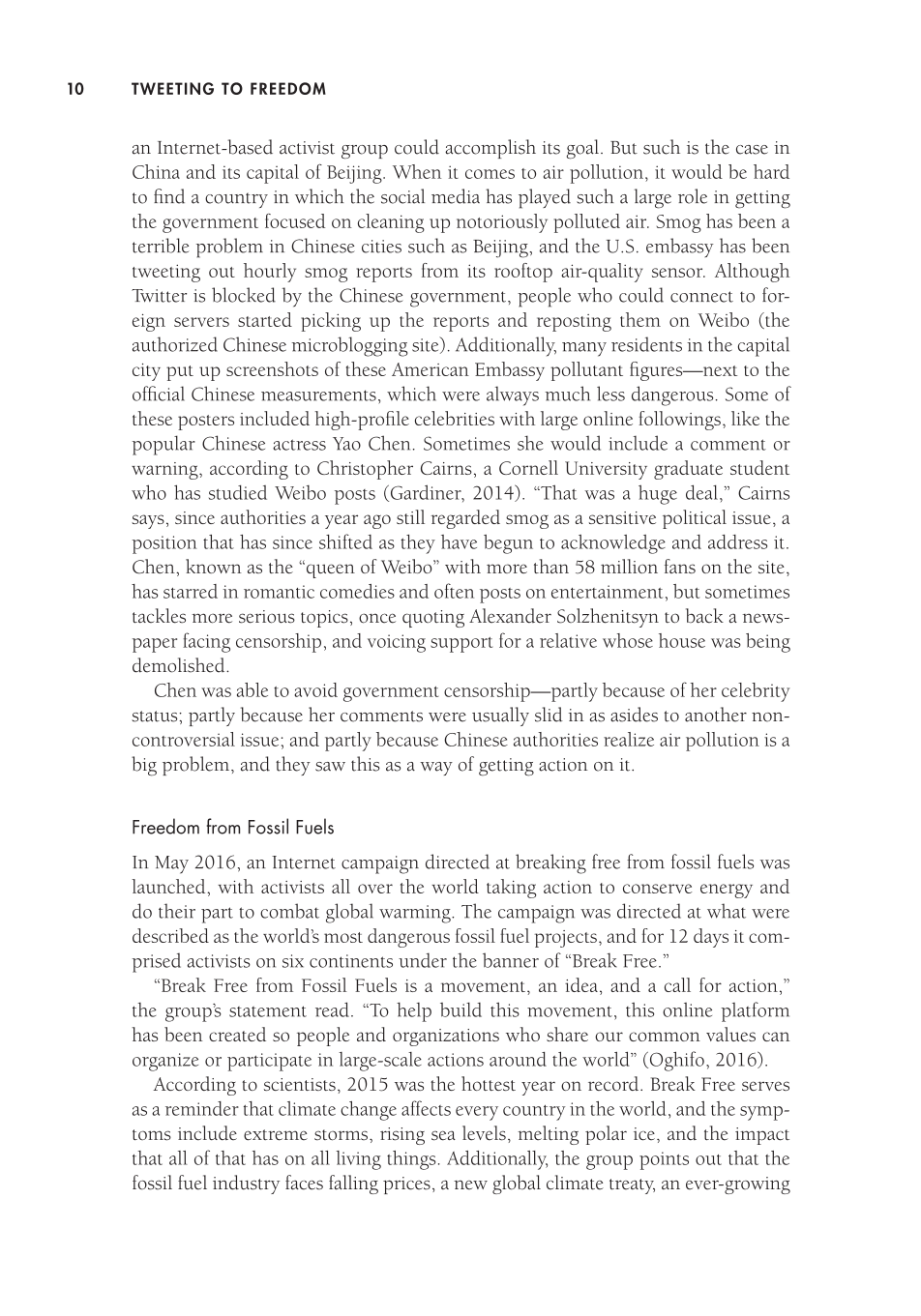TWEETING TO FREEDOM 10
an Internet-based activist group could accomplish its goal. But such is the case in
China and its capital of Beijing. When it comes to air pollution, it would be hard
to find a country in which the social media has played such a large role in getting
the government focused on cleaning up notoriously polluted air. Smog has been a
terrible problem in Chinese cities such as Beijing, and the U.S. embassy has been
tweeting out hourly smog reports from its rooftop air-quality sensor. Although
Twitter is blocked by the Chinese government, people who could connect to for-
eign servers started picking up the reports and reposting them on Weibo (the
authorized Chinese microblogging site). Additionally, many residents in the capital
city put up screenshots of these American Embassy pollutant figures—next to the
official Chinese measurements, which were always much less dangerous. Some of
these posters included high-profile celebrities with large online followings, like the
popular Chinese actress Yao Chen. Sometimes she would include a comment or
warning, according to Christopher Cairns, a Cornell University graduate student
who has studied Weibo posts (Gardiner, 2014). “That was a huge deal,” Cairns
says, since authorities a year ago still regarded smog as a sensitive political issue, a
position that has since shifted as they have begun to acknowledge and address it.
Chen, known as the “queen of Weibo” with more than 58 million fans on the site,
has starred in romantic comedies and often posts on entertainment, but sometimes
tackles more serious topics, once quoting Alexander Solzhenitsyn to back a news-
paper facing censorship, and voicing support for a relative whose house was being
demolished.
Chen was able to avoid government censorship—partly because of her celebrity
status; partly because her comments were usually slid in as asides to another non-
controversial issue; and partly because Chinese authorities realize air pollution is a
big problem, and they saw this as a way of getting action on it.
Freedom from Fossil Fuels
In May 2016, an Internet campaign directed at breaking free from fossil fuels was
launched, with activists all over the world taking action to conserve energy and
do their part to combat global warming. The campaign was directed at what were
described as the world’s most dangerous fossil fuel projects, and for 12 days it com-
prised activists on six continents under the banner of “Break Free.”
“Break Free from Fossil Fuels is a movement, an idea, and a call for action,”
the group’s statement read. “To help build this movement, this online platform
has been created so people and organizations who share our common values can
organize or participate in large-scale actions around the world” (Oghifo, 2016).
According to scientists, 2015 was the hottest year on record. Break Free serves
as a reminder that climate change affects every country in the world, and the symp-
toms include extreme storms, rising sea levels, melting polar ice, and the impact
that all of that has on all living things. Additionally, the group points out that the
fossil fuel industry faces falling prices, a new global climate treaty, an ever-growing




























































































































































































































































































































































































